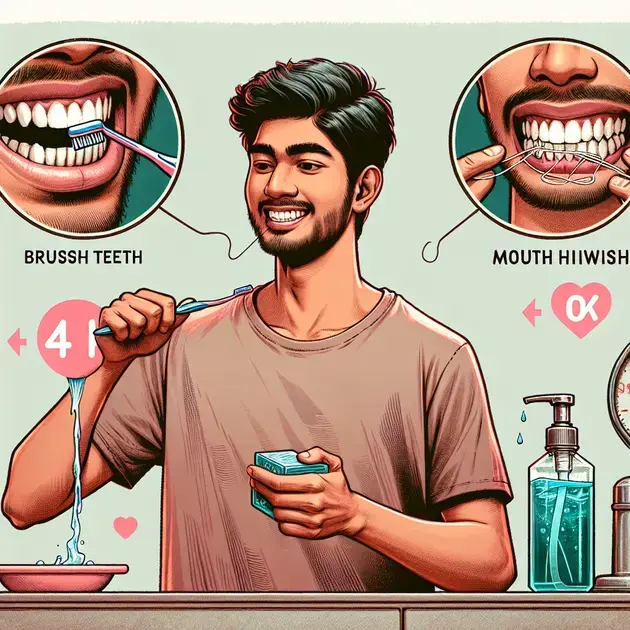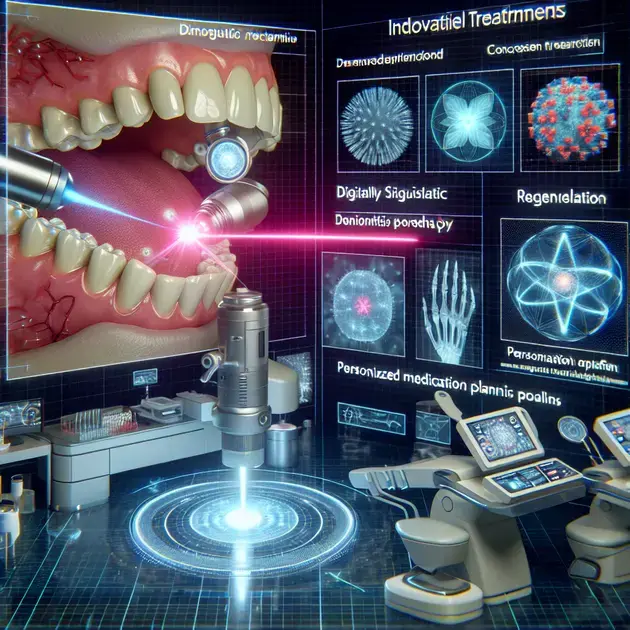Looking for the most effective medication for periodontitis? You’ve come to the right place. This comprehensive guide will provide you with all the information you need to understand and treat this common dental condition.
Periodontitis is a serious gum infection that damages the soft tissue and destroys the bone that supports your teeth. Without proper treatment, periodontitis can lead to tooth loss and other health complications. In this guide, we will explore the best medications available to help you combat periodontitis and maintain a healthy smile.

Understanding Periodontitis Medications
When it comes to understanding periodontitis medications, it’s essential to know that they are primarily used to treat gum disease and related conditions. These medications can vary in their forms, including mouth rinses, gels, or even oral tablets. It is crucial to follow the prescribed dosage and frequency to ensure the effectiveness of the treatment.
One common medication for periodontitis is chlorhexidine mouthwash, which helps reduce bacteria in the mouth and control gum inflammation. To use this medication effectively, it is recommended to rinse your mouth with the solution for a specific duration as directed by your dentist or healthcare provider.
Another type of medication often used for periodontitis is antibiotics, such as doxycycline. These antibiotics help fight off bacterial infections in the gums and promote healing. It’s important to take antibiotics exactly as prescribed and to complete the full course of treatment to prevent antibiotic resistance.
For more severe cases of periodontitis, your dentist may recommend surgical treatments in addition to medications. These may include procedures like gum grafts, flap surgery, or bone grafts to repair the damage caused by gum disease.
Overall, understanding periodontitis medications involves knowing the different types available, how to use them correctly, and the importance of following your healthcare provider’s instructions for optimal results.
Exploring Treatment Options
When exploring treatment options for periodontitis, it’s crucial to consider both traditional and alternative methods to address gum disease effectively. Traditional treatments may include professional cleanings, scaling and root planing, and surgical interventions if necessary.
One alternative treatment option to consider is laser therapy, which uses focused light beams to remove infected tissue and promote gum regeneration. This minimally invasive procedure can help reduce gum inflammation and improve overall oral health.
Another treatment option to explore is the use of probiotics specifically designed for oral health. These beneficial bacteria can help restore the natural balance of microorganisms in the mouth and support gum health. Look for probiotic supplements or oral care products that contain strains known to promote oral health.
Additionally, incorporating herbal remedies like aloe vera or tea tree oil into your oral care routine may provide natural anti-inflammatory and antibacterial benefits for managing periodontitis. These remedies can be found in oral care products or used in DIY mouth rinses or gels.
By exploring a variety of treatment options, including traditional, alternative, and natural remedies, individuals with periodontitis can find a comprehensive approach to managing their condition and improving their oral health.
Tips for Maintaining Oral Health
To maintain optimal oral health and prevent periodontitis, it’s essential to establish a consistent oral care routine and follow healthy habits. This includes brushing your teeth at least twice a day with fluoride toothpaste and flossing daily to remove plaque and debris between the teeth.
Regular dental check-ups are also crucial for detecting early signs of gum disease and receiving professional cleanings to prevent its progression. Schedule routine visits with your dentist every six months or as recommended based on your oral health needs.
In addition to daily oral care practices, maintaining a balanced diet rich in fruits and vegetables and low in sugary and acidic foods can support healthy gums and teeth. Stay hydrated by drinking plenty of water throughout the day to help flush out food particles and bacteria from the mouth.
Avoiding tobacco products and limiting alcohol consumption can also play a significant role in maintaining oral health and reducing the risk of gum disease. Smoking and alcohol use can weaken the immune system and contribute to gum inflammation and infections.
Lastly, stress management techniques and regular exercise can benefit overall health, including oral health. High stress levels can impact the immune system’s ability to fight off oral infections, so finding ways to relax and unwind can promote gum health and overall well-being.
By incorporating these tips into your daily routine and lifestyle, you can help prevent periodontitis and maintain optimal oral health for years to come.

Exploring Treatment Options
When it comes to exploring treatment options for oral health, it is important to consider a variety of factors. From regular dental check-ups to specific treatments for dental issues, there are numerous options available. One common treatment option is teeth cleaning, which helps remove plaque and prevent cavities. Additionally, for more serious issues such as periodontal disease, treatments like scaling and root planing may be necessary.
Another treatment option to explore is dental fillings, which are used to repair cavities and restore the tooth’s structure. These fillings can be made of different materials such as amalgam or composite resin, depending on the patient’s needs and preferences. For patients with missing teeth, dental implants are a popular treatment option that provides a long-term solution for replacing missing teeth.
Overall, exploring treatment options for oral health involves working closely with a dentist to determine the best course of action based on the individual’s specific needs and goals. By considering factors such as the severity of the issue, cost, and long-term implications, patients can make informed decisions about their oral health care.
Tips for Maintaining Oral Health
Maintaining oral health is essential for overall well-being and can help prevent a variety of dental issues. One important tip for maintaining oral health is to brush teeth at least twice a day with fluoride toothpaste. This helps remove plaque and bacteria that can lead to cavities and gum disease.
In addition to regular brushing, it is important to floss daily to remove food particles and plaque from between the teeth. This helps prevent decay and gum inflammation. Another tip for maintaining oral health is to avoid sugary and acidic foods, as they can contribute to tooth decay and erosion.
Visiting the dentist regularly for check-ups and cleanings is also crucial for maintaining oral health. Dentists can detect early signs of dental issues and provide treatment before they become more serious. Overall, practicing good oral hygiene habits and seeking professional dental care are key components of maintaining oral health.
Understanding the Importance of Oral Hygiene
Oral hygiene plays a crucial role in overall health and well-being. Poor oral hygiene can lead to a variety of dental issues such as cavities, gum disease, and bad breath. By maintaining good oral hygiene practices, individuals can prevent these issues and promote a healthy mouth.
Regular brushing and flossing help remove plaque and bacteria from the teeth, preventing decay and gum inflammation. Additionally, using mouthwash can help kill bacteria and freshen breath. Along with at-home care, visiting the dentist for regular check-ups is essential for maintaining oral hygiene.
Understanding the importance of oral hygiene involves recognizing the impact it has on overall health. Poor oral hygiene has been linked to systemic conditions such as heart disease and diabetes. By prioritizing oral hygiene and seeking professional dental care, individuals can improve their overall health and well-being.
Conclusion
Exploring treatment options for oral health is a vital aspect of maintaining overall well-being. From routine teeth cleaning to specialized procedures like dental fillings and implants, there are various avenues to address dental issues effectively. By collaborating closely with a dentist and assessing factors such as severity, cost, and long-term implications, individuals can make well-informed decisions about their oral health care.
Furthermore, implementing good oral health practices is essential for preventing dental problems. Regular brushing and flossing, along with avoiding sugary foods, play a pivotal role in maintaining oral hygiene. Visiting the dentist regularly for check-ups is crucial as it allows for early detection of issues and timely interventions, contributing to sustained oral health.
Understanding the significance of oral hygiene goes beyond just dental benefits; it impacts overall health and well-being. By establishing a strong oral care routine and seeking professional dental care, one can safeguard against conditions like cavities, gum disease, and bad breath. Prioritizing oral hygiene not only nurtures a healthy mouth but also bolsters systemic health, reducing the risk of serious conditions such as heart disease and diabetes.



